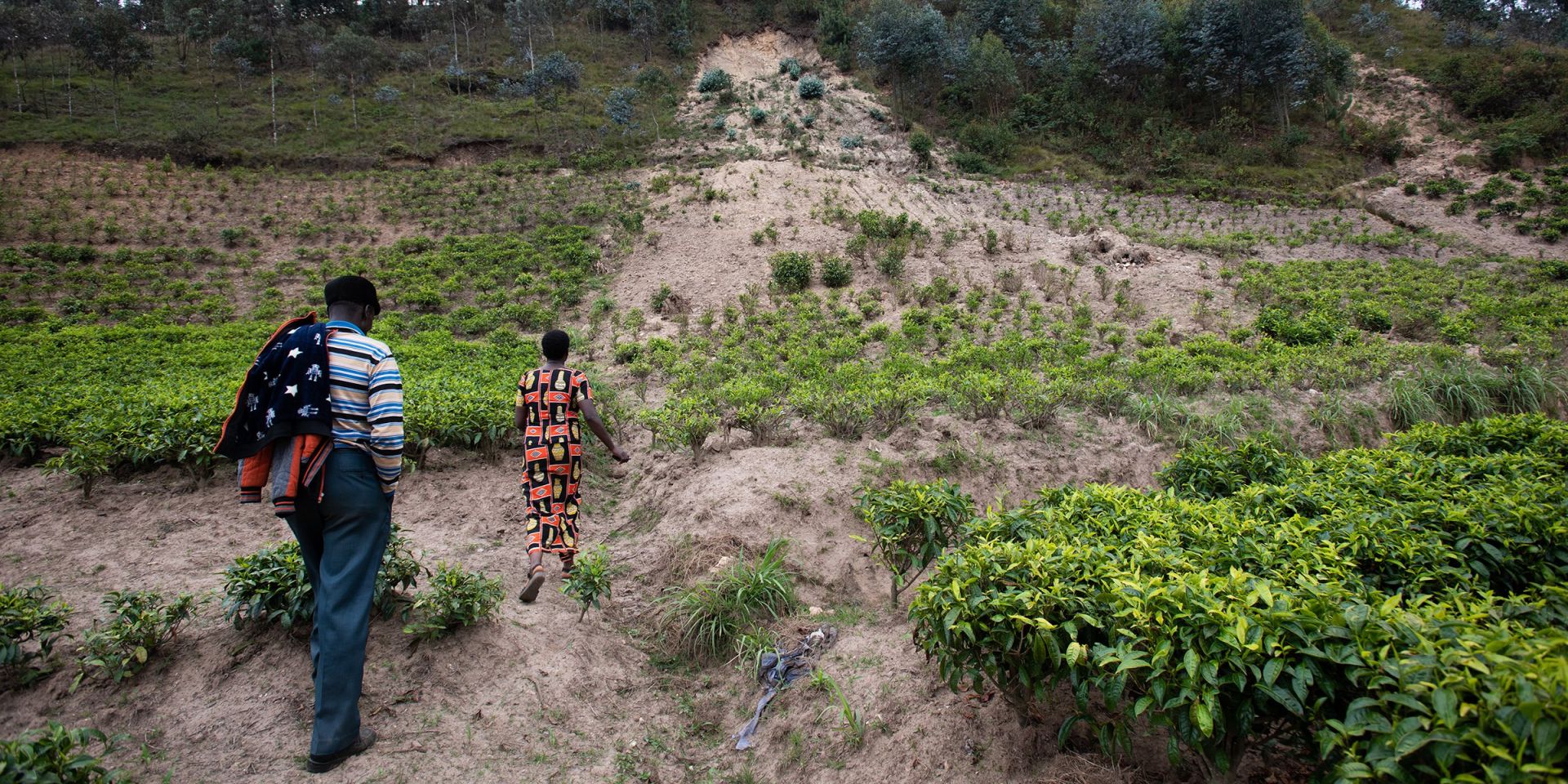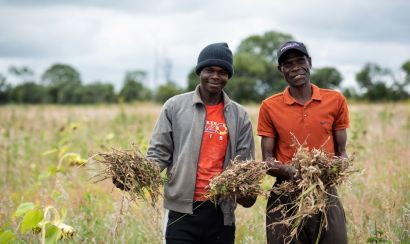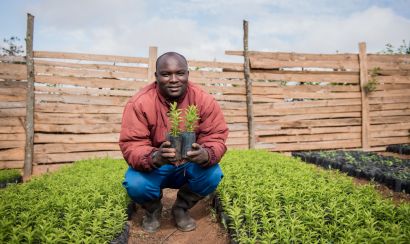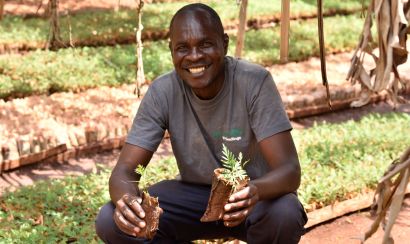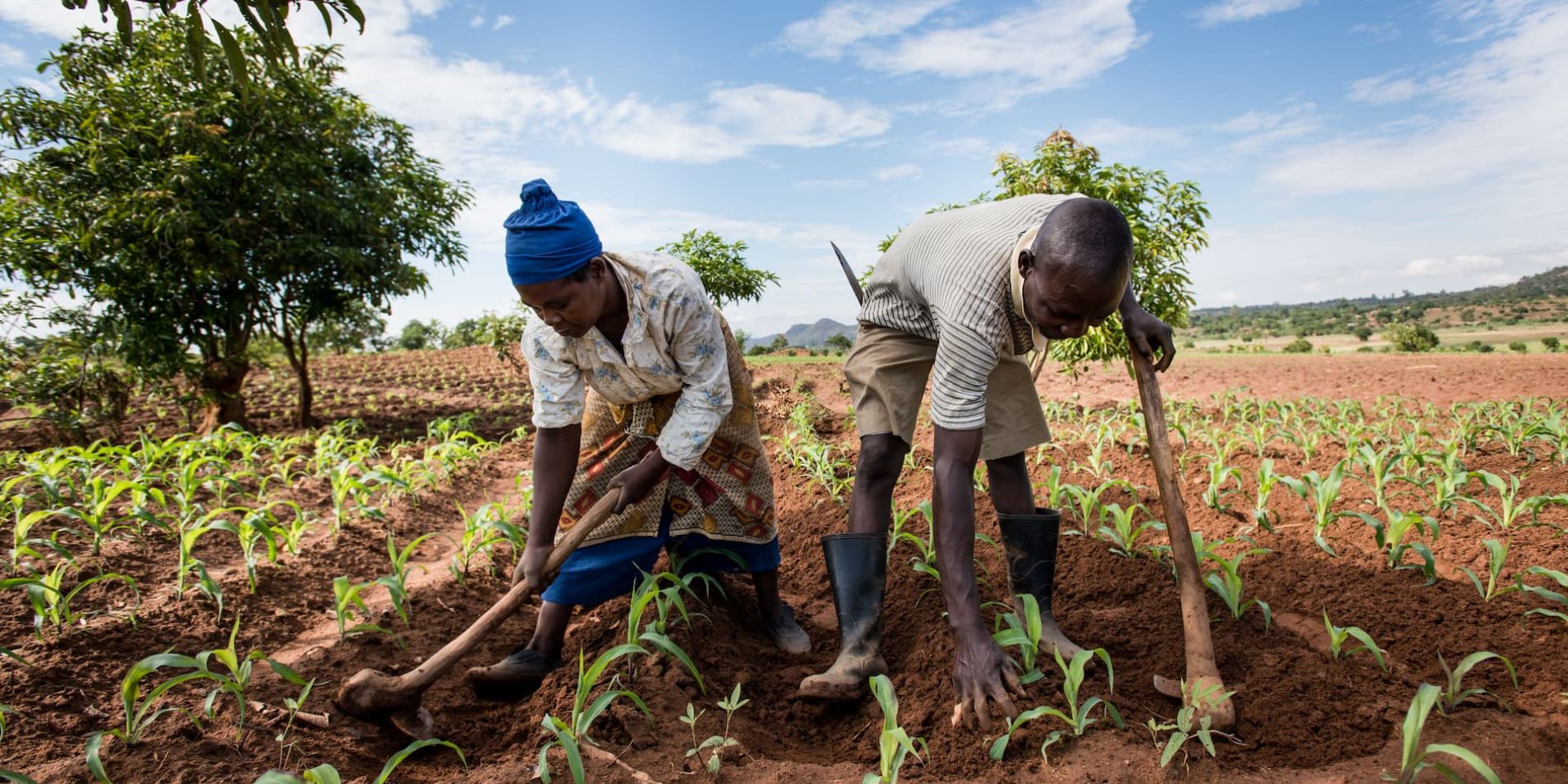Insurance Can Improve Food Security in Africa
Our food security depends on reliable harvests from smallholder farmers, but erratic weather is making their job increasingly risky. This year, droughts cut into harvests across Malawi, Rwanda, Tanzania, and Zambia—and many thousands of hard-working farmers struggled to make ends meet.
To ensure a steady food supply, governments must secure the livelihoods of the farmers who grow our food. One proven tool to increase farmer resilience is insurance, which helps farmers weather poor harvests and adapt to a changing climate. As one of the largest purchasers of insurance in Africa, we have seen the benefits for farmers firsthand.
But few insurers want to enter the market, making government support critical. Progressive government programs, like the Kenya Agriculture Insurance Programme, can lead the way.
The challenge of a changing climate
Rose Mukagatare, who supports a family of seven on her farm in Karongi, Rwanda, says: “Before the dry season wasn’t so harsh. There was still some rain to keep the crops alive. Now, the whole village turns yellow. There is no food for the livestock and no water for the land. The balance is gone.”
Agriculture has always depended on the weather, but climate change is making growing cycles more unpredictable. Africa’s 50 million smallholder farmers, who rely on rainfed crops to feed their families, are feeling these changes first. For families who live season to season, a bad weather year can mean months of hunger until the next harvest.
In the short term, insurance can help reduce hunger. One Acre Fund offers insurance as part of our standard agricultural service package to farmers in five African countries. When weather harms their crops, farmers like Rose get reimbursed for a portion of their upfront investment in seeds and fertilizer, easing the immediate financial pressure of a poor harvest.
In the long term, insurance can increase resilience. Farmers who purchase hybrid seeds suited to their local climate reliably harvest more food. But many farmers are understandably nervous to spend money on high-quality seed if they fear a bad year. When farmers are confident of insurance coverage, they are more willing to try modern farming methods—a key to bigger harvests.
Governments can lead the way
The idea is simple, but the challenge is scale. Insuring 50 farmers in a single village is risky, because they’re all likely to have similar harvests. But insuring 50,000 farmers in a bigger area means the risk is more evenly spread, making it a better bet for insurance companies and more affordable for farmers. This is why governments’ support is so essential.
Progressive policies can create an important incentive for agricultural insurance. In Kenya, the 2018/19 agricultural budget prioritizes farmers’ resilience to “climate shocks,” with a key focus on insurance for smallholders. This encourages insurers, who have traditionally focused on commercial farms, to add coverage options for the small-scale farms that produce 70 percent of Kenya’s maize. Rwanda is also developing a policy to guide investments in insurance.
Subsidies can also help build demand. Since 2016, the Kenya Agriculture Insurance Programme has offered a 50 percent insurance subsidy for smallholders growing maize and wheat, one of the first large-scale schemes in Africa. In Uganda, the government offers a 70 percent subsidy for smallholder and commercial farmers, growing the insurance sector by 17 percent in 2017.
Finally, education is critical. Given low levels of awareness around insurance in the region, farmers may be hesitant to buy insurance. Through sensitization campaigns, governments can explain how insurance works to build farmers’ confidence in the coverage.
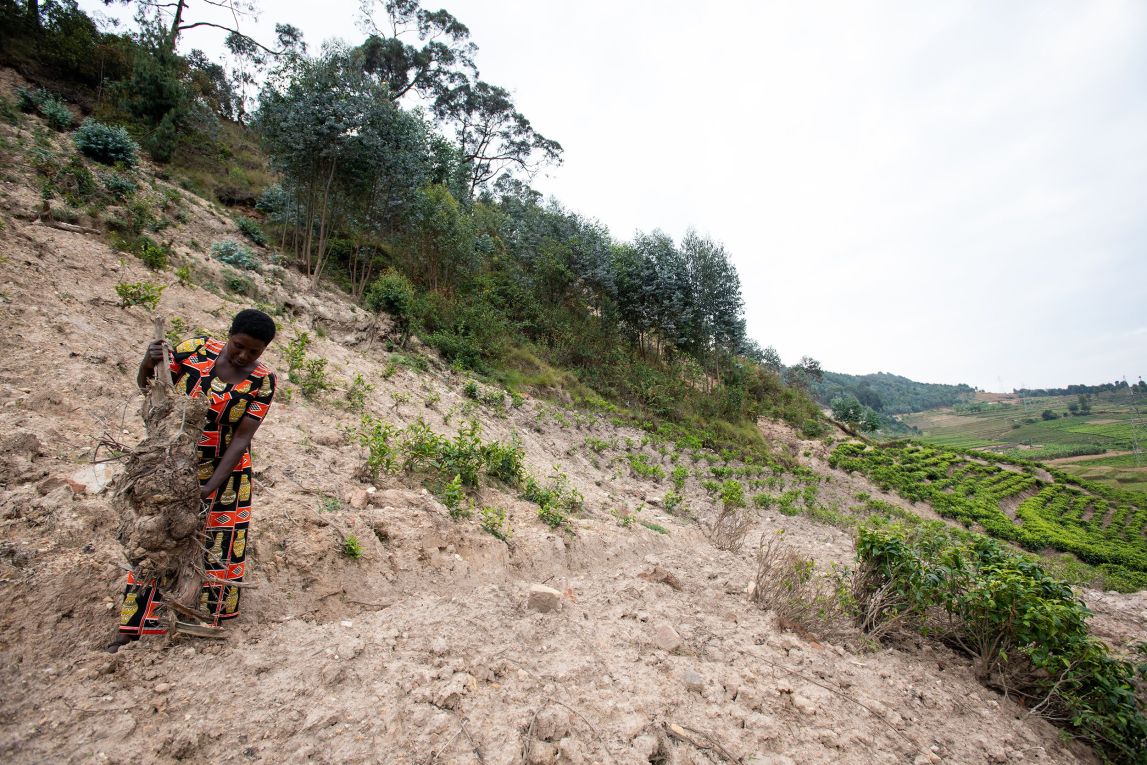
Putting good policies into action
Once governments have set the stage with smart policies and subsidies, the challenge is adoption. One Acre Fund is one of the first major players to take up the Kenyan government’s insurance subsidy, extending coverage to our 350,000 Kenyan clients in 2018.
But this just a drop in the bucket for the millions of small-scale farmers in Kenya. For the sector to grow and benefit everyone, a lot more private sector players, agricultural firms, development organizations and insurance companies need to take up the subsidy scheme.
Governments can encourage adoption by tapping into existing networks for farmers, rather than pursuing each farmer individually. For example, cooperatives, microfinance institutions and agro dealers can be encouraged to purchase insurance on behalf of a group of farmers. Governments can also ensure these different actors share best practices and technical expertise. Working hand in hand, governments and organizations can bring good policies to life.
